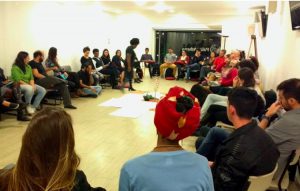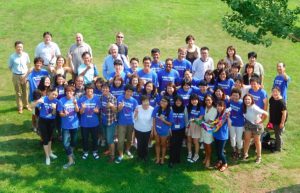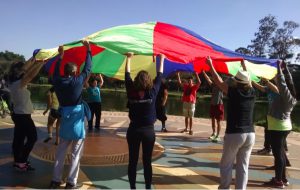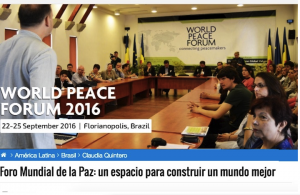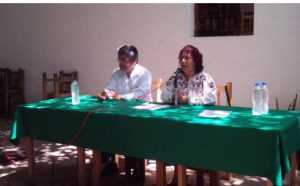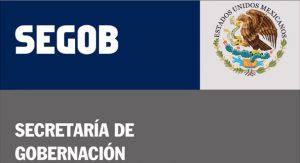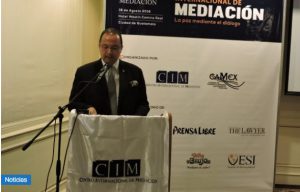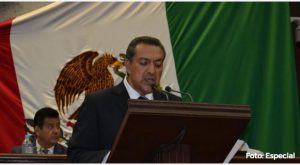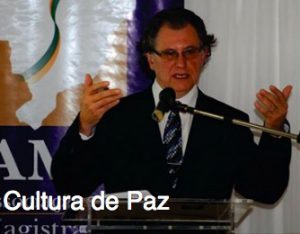… EDUCATION FOR PEACE …
An article of RCN Radio along with comments by Gina Parody, Minister of Education, reprinted by El Pilon (translated by CPNN)
The Minister of Education, Gina Parody, speaking at the meeting of secretaries of education from across the country, invited them to teach a new generation of peace, preparing children and young people to consolidate peace. The meeting took place in the municipality of Villa de Leyva in Boyaca department.
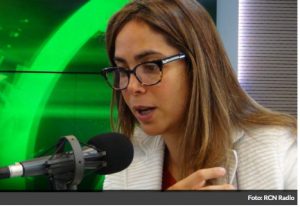
Minister of Education, Gina Parody
The directors of the 95 Ministries of Education in the country are meeting from 29 June to 1 July, to take stock of education management and to meet the sector’s challenges in the light of the peace agreement to be signed in Havana, Cuba.
Secretaries of Education and the Education Minister are addressing a number of issues including educational infrastructure, the full school day, enrollments, quality of education, early childhood education and budgetary concerns, among others.
Remarks by Gina Parody, Minister of Education:
The government of President Juan Manuel Santos has set a goal: see the country experience its first generation that does not live even one day at war: a generation of peace. With the silence of the guns Colombia can turn the page and start writing the chapter of peace and equity. To write that chapter of hope and reconciliation, Colombia is prepared with the most valuable legacy that we can give our children: education.
For the first time, the government has allocated a larger budget for education of our children and young people, that the budget for war. We are convinced that it is in the classrooms that the new generation will begin to rewrite the history of Colombia as a country in peace.
(Articles continued in right column)
(Click here for the original articles in Spanish)
Questions for this article:
Where is peace education taking place?
(continued from left column)
And we’re already advancing! With every action we take in favor of education, we move forward towards peace. For example, we have established free education in all public schools in the country, from kindergarten to grade eleven; today thanks to this 7,620,397 children and young people are preparing for the future and their families simply by sending them to school.
We declare education to be compulsory until the 11th grade, to ensure that children wield pencils rather than guns. We started the Full School Day, ensuring that children spend more time in school and less on the streets. Today there are more than 500 thousand children who benefit from this measure, by 2018 it will be 2.3 million children, and by 2030 all children in public schools will be studying eight hours a day.
Our children will not only have more hours of study but also more spacious and modern spaces that facilitate learning. Our goal is to build 30,000 new classrooms by 2018, equivalent to 1,500 schools.
We are opening the possibility for low-income youth to prepare in the best universities in the country, we are gaining brilliant minds in the service of peace and rather than in the battlefields. With the program ‘Ser Pilo Paga’ 40,000 young people and their families will transform their lives.
We are working to improve the conditions of our teachers, because they are the heroes of education, whose dedication and commitment are forming the generation of peace. We are delivering 4,600 master’s scholarships and more than 20,000 digital tablets with instructional materials. To this are added 78,000 million pesos of incentives to reward their efforts and to improve the quality of our education.
With actions like these, we can be sure and without doubt, that the future and progress of our country will be defined in the classroom and not in the fields of war, because the soul of peace is education.
